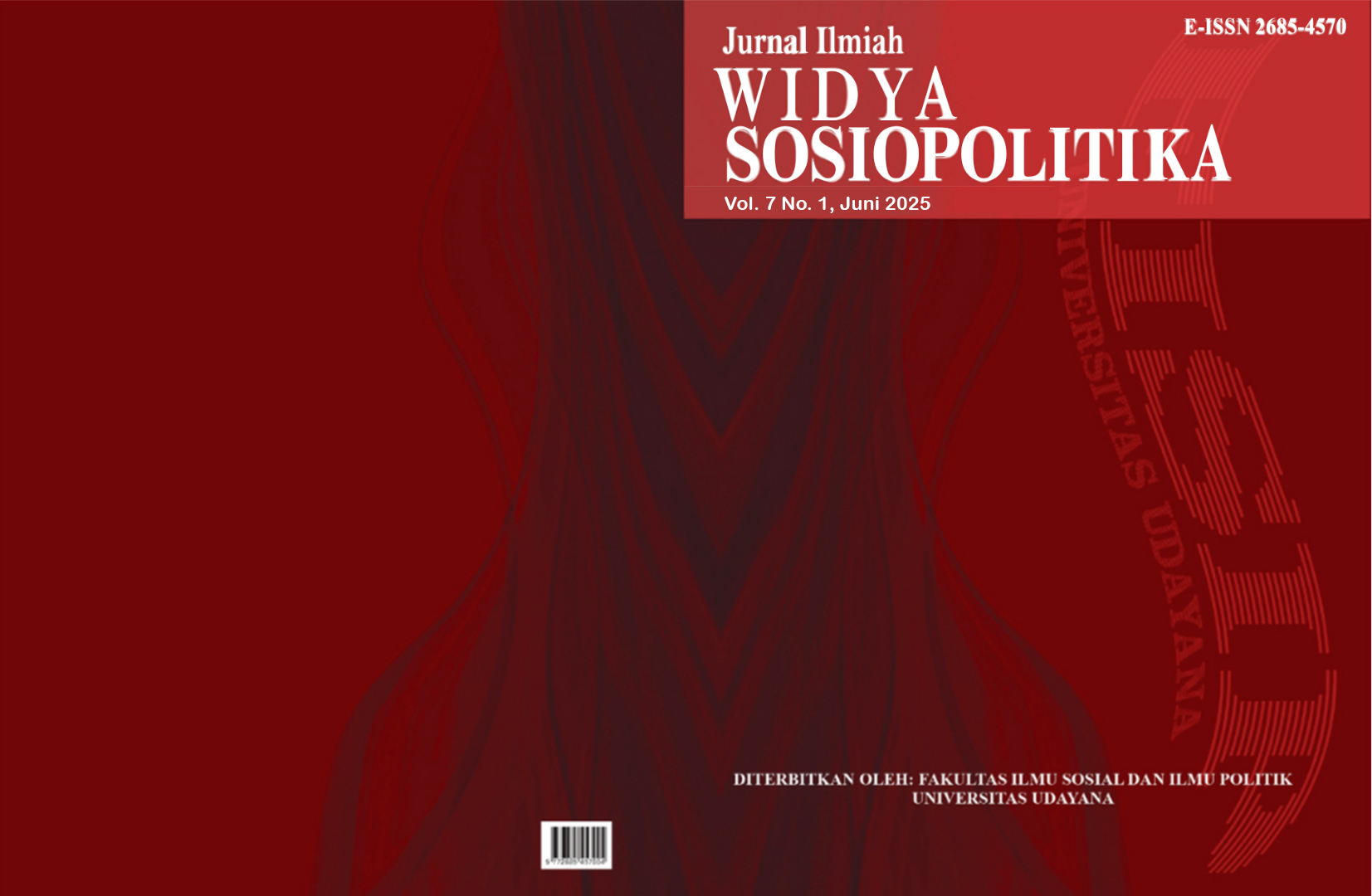Dampak ACFTA terhadap Kemandirian Ekonomi ASEAN: Menavigasi Ketergantungan dalam Sektor Perdagangan Barang
Abstract
Economic dependence of ASEAN on China has become a key concern since the implementation of the ASEAN-China Free Trade Agreement (ACFTA). While this agreement was expected to boost economic growth and welfare among member states, it also introduced the risk of dependence that could affect the economic sovereignty of ASEAN countries. This study aims to identify whether ACFTA has fostered dependency in ASEAN-China trade relations by analyzing trade balances under ACFTA from 2013 to 2023, as well as the trade balances of individual ASEAN countries with China. The methodology employed is a qualitative case-study analysis, incorporating trade data from official ASEAN and Chinese institutions, along with a review of the literature on the ACFTA framework. The findings reveal that economic dependency on China is indeed evident, characterized by significant trade deficits for the majority of ASEAN countries. However, some member states demonstrate resilience, with a few achieving trade surpluses in specific sectors. This indicates that dependency levels vary widely across ASEAN, influenced by the economic structures and trade policies of each nation. In conclusion, while ACFTA has strengthened ASEAN-China economic relations, excessive dependence remains a critical risk for several ASEAN member states.
Downloads
References
ASEAN Statistical Publication eBook by Years | ASEANstats Official Web Portal. (2023). Aseanstats.org. https://www.aseanstats.org/ebooks/ebook-publication-by-year/
Asyono, A. H., & Samputra, P. L. (2023). Analysis Of Asean-China Free Trade Area (ACFTA) Cooperation from the Perspective of Competitive Intelligence. International Journal of Social Service and Research (IJSSR), 3(07), 1762–1771.
Centre, F. (2019). ACFTA. Ftacenter.kemendag.go.id. https://ftacenter.kemendag.go.id/acfta
Kawamura, A. (2023). VIETNAM’S TRADE STRUCTURE AND CHALLENGES FOR SUSTAINABLE GROWTH. Mitsui & Co. Global Strategic Studies Institute.
Kusuma, A. A. (2017). Dampak ASEAN-China free trade agreement (ACFTA) terhadap pertumbuhan ekonomi Indonesia. Jurnal Ekonomi Pembangunan, 15(1), 1–14. https://doi.org/10.29259/jep.v15i1.8778
Leong, H. K., & Ku, S. C. Y. (2005). China and Southeast Asia: Global Changes and Regional Challenges. ISEAS / CSEAS. https://bookshop.iseas.edu.sg/publication/1148#contents
Medina, A. F. (2017, December 7). ASEAN’s Free Trade Agreements: An Overview. ASEAN Business News. https://www.aseanbriefing.com/news/aseans-free-trade-agreements-an-overview/
Puspitasari, & Prabawati, S. (2015). Memperkuat Daya Saing Produk Pertanian (pp. 459–480). IAARD Press.
SatuData, K. (2024). PERDAGANGAN ASEAN-CHINA SEBELUM DAN SETELAH IMPLEMENTASI ACFTA PERIODE 2013-2022. Kemendag.go.id. https://satudata.kemendag.go.id/ringkasan/negara/perdagangan-asean-china-2013-2022
Xiao, T. (2024). China-Thailand Economic Ties: Trade and Investment Opportunities. China-Briefing.com. https://www.china-briefing.com/news/china-thailand-economic-ties-trade-and-investment-opportunities/




1.png)

3.png)








 Diterbitkan oleh Fakultas Ilmu Sosial dan Ilmu Politik Universitas Udayana
Diterbitkan oleh Fakultas Ilmu Sosial dan Ilmu Politik Universitas Udayana
